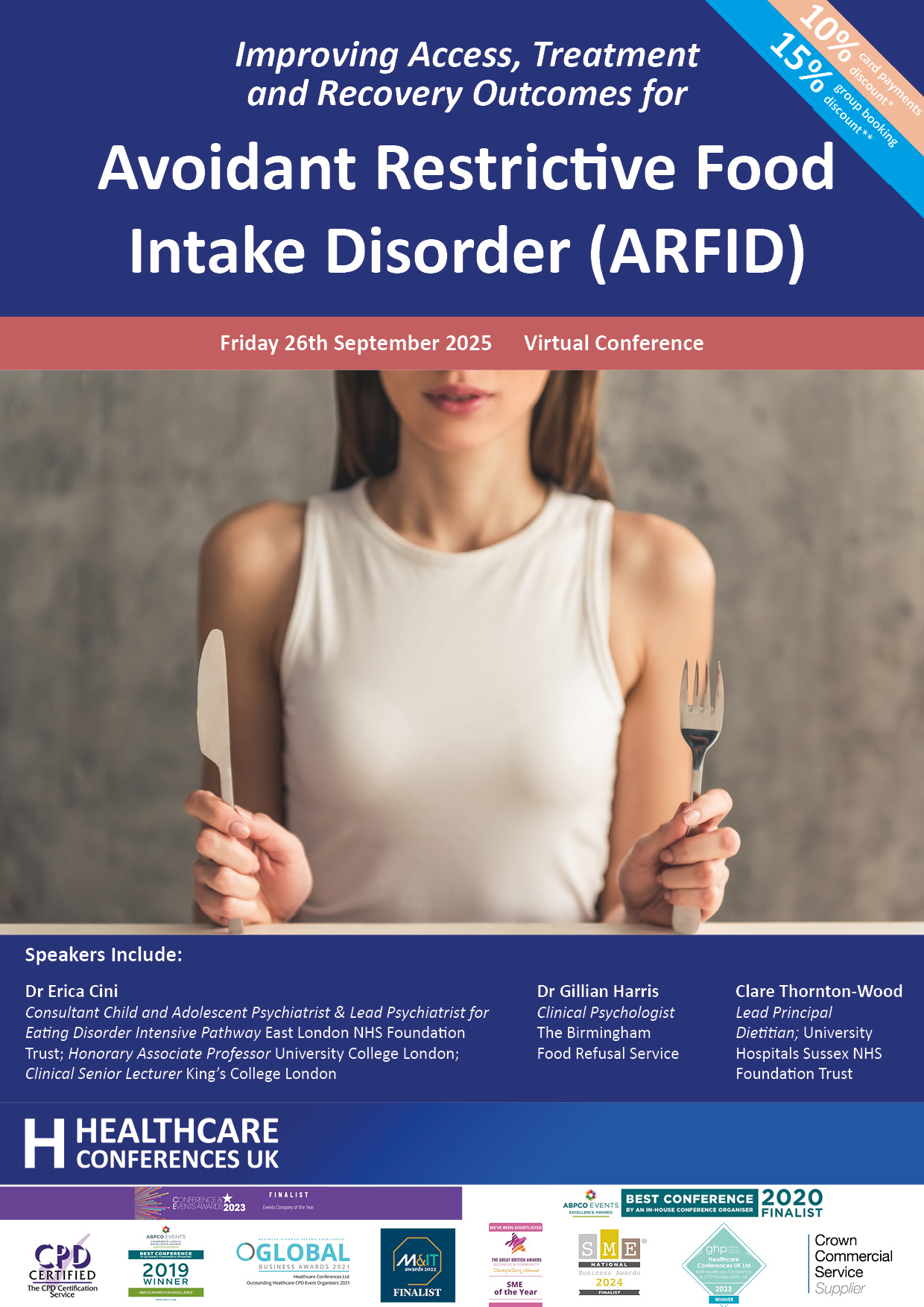Follow the conference on X #ARFID
This conference will serve as a vital platform for bringing together experts, researchers, clinicians and advocates to foster a deeper understanding of Avoidant Restrictive Food Intake Disorder (ARFID).
We will learn from child and adolescent services, eating disorder services and experts in the field to develop a consensus on best practice. Vital lived experience will be shared from an adult with ARFID, as well as a person with lived experiences of autism combined with an eating disorder. Case studies will be explored where we will support delegates to discuss and understand approaches to treatments and pathways to effective care and recovery.
“A lot of people are saying they don't know where else to turn. It's very difficult for them to get help for their loved ones. Unlike a lot of illnesses, there isn’t a NICE guideline on ARFID, which makes it very difficult for health professionals to know what they should be doing. And generally, there’s a postcode lottery when it comes to treatment provision.”
Tom Quinn, Director of External Affairs, Beat, January 2025
“We've learned that people have had quite a difficult journey to treatment in the past. So it's building on that early recognition. They've been told that nothing can be done, they need to live with it or that they need to force the issue, that they'll eat when they're hungry, that kind of thing. But that can be really detrimental and actually makes things a lot worse.”
Serena Williamson, Lead Dietitian for All Age Eating Disorders Service, February 2025
Additionally, this conference will facilitate networking opportunities and foster collaborations that will pave the way for supporting ARFID in the clinical realm and the broader community. By attending you will be participating in a crucial conversation on how we unravel the complexities of ARFID and the ways we can treat it moving forward.
Benefits of attending this conference will enable you to:
Network with colleagues who are working to improve services, practice and treatment for people who are experiencing Avoidant Restrictive Food Intake Disorder
Understand the national context and evidence base
Reflect on the lived experience of Avoidant Restrictive Food Intake Disorder, as well as Autism with an Eating Disorder
Understand the current challenges around ARFID as a newer diagnosis and the current challenges in treatment and service delivery
Develop your skills and improve competence in delivering ARFID services for children and adults
Learn from an innovative pilot improving relationships with food
Understand the impact on child development and why young children develop feeding difficulties
Identify the holistic effect ARFID has on children and families
Learn from current best practice in treatment of ARFID from dietitians and researchers
Understand the incidence of ARFID and why it is changing
Explore the genetic and environmental influences on the onset of ARFID
Develop best practice in safe refeeding of malnourished patients with restrictive eating disorders
Ensure you are up to date with current consensus on treating ARFID in patients with autism and explore the complications that having both diagnosis can have
Improve the way you develop recovery focused care plans and assess risk on transition of care
Develop your skills in identifying a true ARFID patient over another eating disorder diagnosis
Self assess and reflect on your own practice
Supports CPD professional development and acts as revalidation evidence. This course provides 5 Hrs training for CPD subject to peer group approval for revalidation purposes






